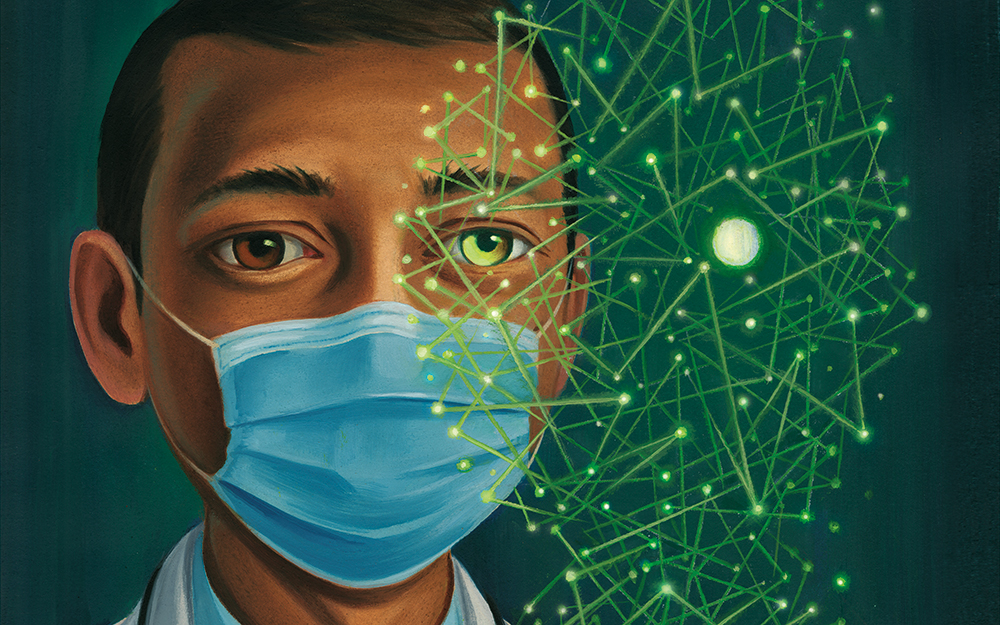Artificial Intelligence Advances
Date
May 24, 2023
Credits

Date
May 24, 2023
Credits
Medical providers featured in this article
In Brief
{{cta-block}}
Cedars-Sinai investigators are using AI to predict and diagnose disease earlier and more accurately. Below we highlight a few of the latest advances from our researchers in this dynamic field.
AI Studies Move the Needle on Two Common Heart Conditions
AI accurately identifies increased buildup of coronary artery calcium, a marker of coronary artery disease, and shows promise for predicting often-fatal sudden cardiac arrest.
AI Model Rapidly Assesses Severity of COVID-19 Pneumonia
AI speeds analyses and yields more accurate diagnoses of COVID-19 pneumonia, which can be challenging to classify.
AI Tool Identifies Patients at Risk of Reduced Blood Flow
A new tool that accurately predicts reduced coronary blood flow could potentially be used in routine patient visits to determine next steps in the treatment plan.
AI Model May Predict C-Section Delivery
An innovative computer program may predict whether a woman will deliver vaginally or via a cesarean section.
AI Improves Accuracy of Heart Condition Diagnosis
The accuracy of diagnosing coronary artery disease and predicting patient risk is improved with the help of AI models.
AI Methods Being Used to Find Alzheimer’s Biomarkers
An $8 million grant from the National Institutes of Health uses AI and machine-learning methods to identify genetic predictors of Alzheimer’s disease.
AI More Accurate Than Technicians
AI proved more successful in assessing and diagnosing cardiac function when compared to echocardiogram assessments made by sonographers.
AI Tools Predict Spine Surgery Outcomes
AI and machine learning can help spine surgeons predict which patients might struggle with opioids to address pain-management issues in advance.
App More Accurate in Characterizing Stool Samples
A smartphone app’s AI demonstrated accuracy that matched expert gastroenterologists at characterizing stool specimens.
AI Tool May Detect Earliest Signs of Pancreatic Cancer
AI technology accurately predicted who would develop pancreatic cancer based on what their CT scans looked like years prior to being diagnosed with the disease.
AI Algorithm Better Identifies Risk of Sudden Cardiac Arrest
A clinical algorithm is the first to distinguish between treatable and untreatable sudden cardiac arrest, holding the potential to enhance prevention of the often-deadly condition.
AI Tool May Help Predict Heart Attacks
An AI-enabled tool may make it easier to predict whether a person will have a heart attack based on the amount and composition of plaque in arteries that supply blood to the heart.
AI Algorithm Detects Frequently Overlooked Heart Diseases
An AI algorithm can effectively identify and distinguish between two life-threatening heart conditions that are often easy to miss: hypertrophic cardiomyopathy and cardiac amyloidosis.
‘Molecular Twin’ Initiative Harnesses AI for Cancer Care
Virtual replicas of patients’ DNA, RNA, protein and other information help design personalized cancer treatment options and risk assessment.





